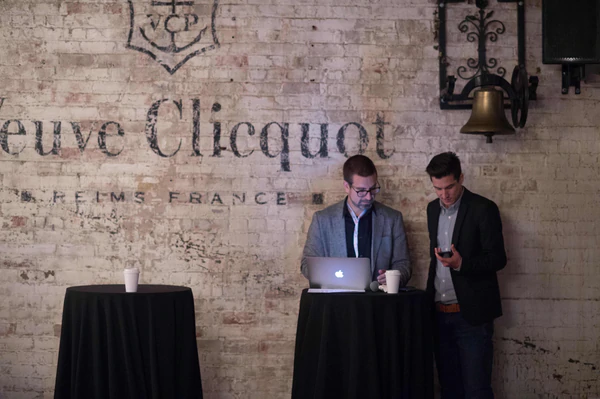
It would be almost frivolous to discuss sponsorship trends for 2021. If last year has taught us anything, it’s to live with a high level of uncertainty and to know that planning of any kind has been a fraught affair in the sport and entertainment industry.
In lieu of trends, we offer some learnings from 2020 and thoughts for the new year ahead.
What history tells us
Despite the irreparable loss of life, previous pandemics in 1918, 1957 and 1968 all had a relatively modest and temporary impact on the economy and on people’s behaviour.
Though it makes for flashy headlines, this crisis will likely not redefine our way of life.
Forget the new normal. We will see audiences rush back to live events.
People are craving connection of this kind, and we will find very few things altered permanently.
However, an economic downturn will put added pressure on sponsorship managers to show return on sponsorship investments in order to protect budgets. This will lead to an increase in valuation and performance measurement surveys, not dissimilar to what was observed in 2008 during the financial crisis.
With activations cancelled in 2020, many brands have already taken the time to reassess their portfolio and look at how sponsorship fits in their marketing efforts, which will benefit the sponsorship industry in the long run.
Virtual events
Virtual events were certainly the talk of the town in 2020.
Before 2020, many properties, especially smaller organizations, lagged behind in terms of their digital presence and—most notably—their sponsor integration online. As the crisis emerged and properties looked to quickly bring audiences online, very little thought was put into smart and relevant sponsor integration.
Virtual (or drive-in events) were a way to offer some respite to people otherwise stuck at home with very little to do, and was a way for properties to remain top of mind, but the experience fell short in many ways.
Virtual experiences attract only a fraction of audiences that typically attend live events and the format was most successful for music concerts or comedy shows. In a recent survey conducted by Elevent, 13% of respondents stated they watched a virtual event in 2020 and 3% attended a drive-in event. Of those attendees, their satisfaction rate was lukewarm at best. Most attendees planned to return in person when possible.
About 10% of new online attendees have been new audiences that in-person events would not have otherwise attracted, because of the distance or the cost to attend the event. This is worthy of noting.
The crisis forced organizations used to focusing all of their attention on the live event to invest in their digital presence. This is a positive step and will likely outlive the crisis.
However, maintaining both a physical and a virtual presence, or hybrid events, may not hold as the cost is simply too high for most organizations.
On the business event front, we are certainly witnessing a saturation: there is now a plethora of free virtual events and seminars offered. That, together with increasing screen fatigue, will certainly contribute to lower audience interest.
Esports’ big moment?
The absence of live events has brought many pundits to predict esports would fill the void and rise to the mainstream.
That did not happen. Esports has most definitely carved out its place. It is an amazing medium where fans are extremely engaged, and brands will continue to invest in it, but it will not have the reach of traditional sports in the near future as it remains too fragmented.
F1 & NASCAR had great initiatives where actual drivers were competing both against each other and against a selection of fans, which proved extremely relevant in the downtime before racing was allowed to resume in venues emptied of its fans.
A few clever sponsorships initiatives are also worthy of note.
Red Bull, which has a strong presence in esports because of its natural fit, has launched a global League of Legends tournament named Solo Q.
Burger King’s marketers continue to shine. With their cheeky jersey sponsorship of Stevenage FC, a team at the bottom of fourth division, they got their logo in FIFA 20 and launched the Stevenage Challenge, a campaign that invited gamers to play as Stevenage and interact on social media to win food prizes. The result: Stevenage became the most used team in the game’s career mode.
Sponsorship policy
The entertainment and not-for-profit space suffered greatly in 2020. These organizations will have to turn to corporate support to stay alive.
We anticipate that corporations will receive a flood of sponsorship and donation requests this year.
Brands must be prepared for this high volume of sponsorship requests. They’ll need to identify a clear set of criteria to support organizations in a way that will fit with their marketing goals and/or corporate social responsibility objectives. In addition to these guiding principles, they’ll also need to draw up a clear workflow to manage the multiple requests coming in.
Back to normal
Finally, let me take a stab at the question on everyone’s mind: W-H-E-N will we finally go back to normal? First of all, live events seem to fall into two categories: 1) the folks that are steadfast about hosting events in the summer and 2) other organizers, like the people behind the UK’s Glastonbury Festival, traditionally held in June, who have already announced that they will not be holding an edition in 2021.
Last year, I fell in the very pessimistic category of thinking that no events of any kind would be held before the end of the year. But now, things have changed.
Despite the vaccination efforts getting off to a slow start, new vaccines are likely to be approved in the coming weeks and months. Governments will follow suit by scaling up their rollout efforts. Current lockdowns are bringing cases down and the arrival of spring in the Northern Hemisphere will contribute to a reduction in the number of cases.
Speaking of vaccines, sponsorship of Band-Aids, anyone?

I am ready to make the bold prediction that we may very well find ourselves attending outdoor festivals this summer, going to sporting events, and maybe even running marathons by the end of the year—all with a combination of masks, reduced crowds and social distancing. I, for one, am looking forward to the Tokyo Olympics this summer.
Looking forward
During the crisis, I came to wonder what value, as marketers, we were bringing to society, wishing I could be more helpful, especially as I witnessed the personal sacrifices that our healthcare workers were making on a daily basis
But the immediate goal in front of us was merely to save our small business and the jobs of people that work with us.
We don’t save lives, but 2020 was an example of a year without live entertainment, which is something we’re all craving. And sponsorship is one of the levers that make these things possible.
Francis Dumais
Co-founder, Elevent
Looking to automate sponsorship requests management? Check out BrickRoad.
Sources
https://www.bbc.com/news/entertainment-arts-55746293
https://www.cdc.gov/flu/pandemic-resources/basics/past-pandemics.html
https://www.bbc.com/sport/football/54279530
https://voxeu.org/article/1918-influenza-did-not-kill-us-economy
https://www.cdc.gov/flu/pandemic-resources/basics/past-pandemics.html
